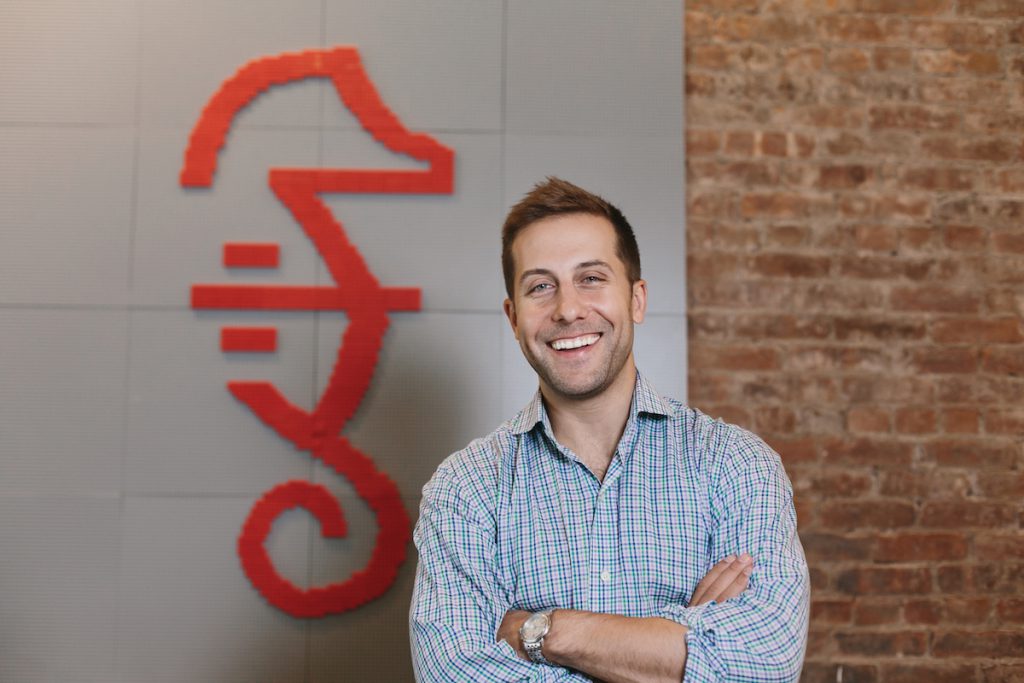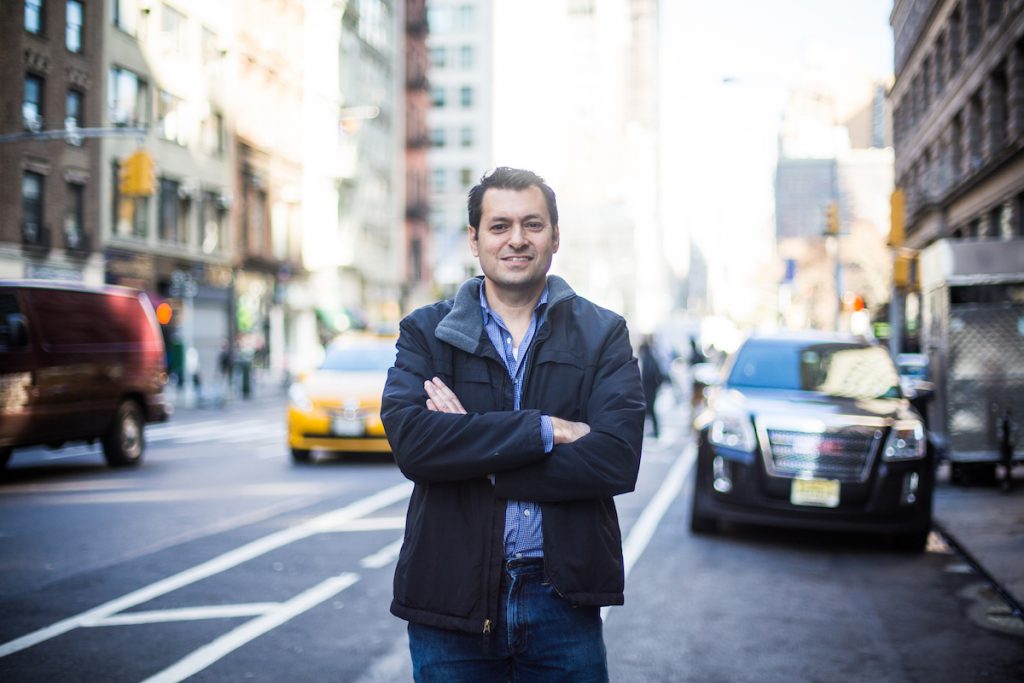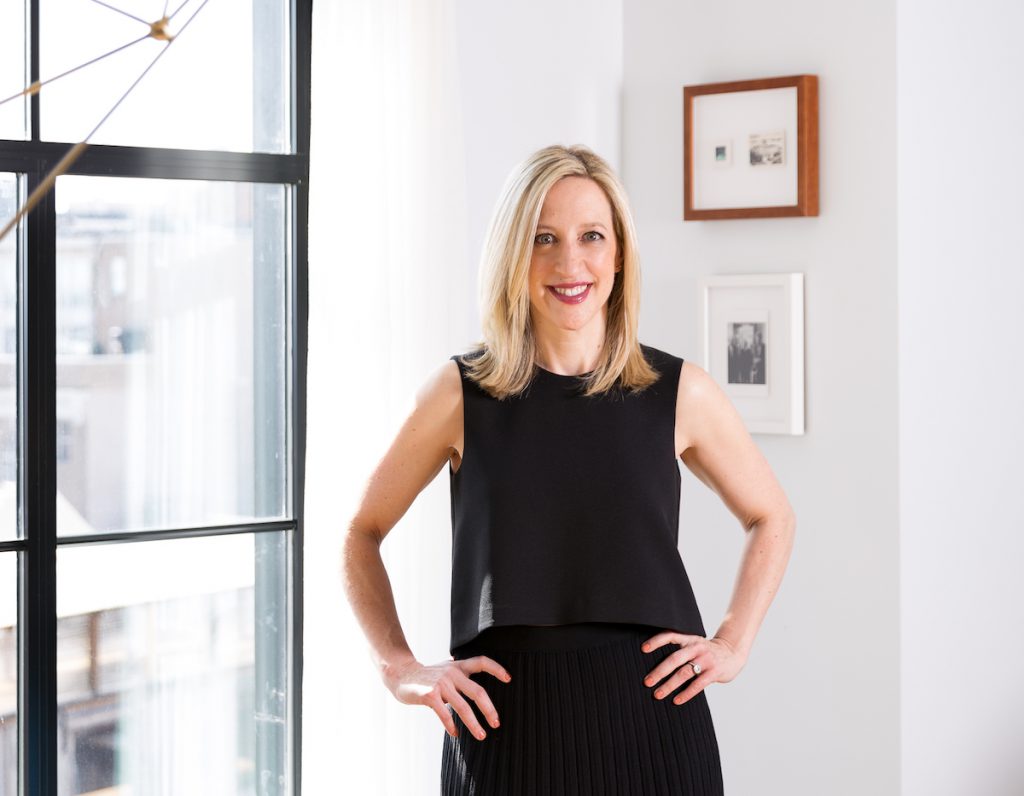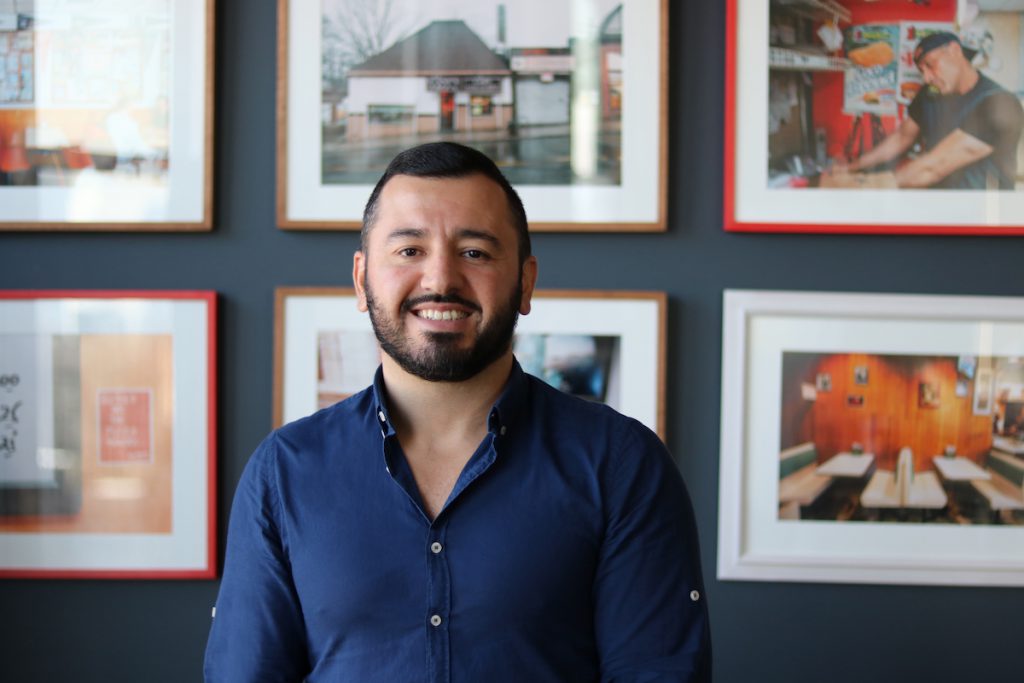Among the endless amount of information focused on helping early-stage founders, I wanted to shine a light on what the next stage brings. What is the experience like for founders at scale? What are some habits, routines, challenges, and tips they might have to share? I asked nine successful New York City-based founders to share their insights, advice, and unique perspectives to help us better understand the next stage of the entrepreneurial journey.

Michael Rothman, co-founder and CEO of dad-oriented digital media platform Fatherly.
Successful founders take control of their own mindsets.
Raising a significant amount of capital and scaling a company comes with a different set of challenges. Things don’t get any easier, says Michael Rothman at Fatherly. His experience led him to develop a different perspective on overcoming obstacles. The key, he says, is how you perceive the challenges you face.
That has made a big difference for him so far. Coming from a place of fear will magnify and make any challenge scarier than it is. Instead, reframe it from a place of confidence in your ability to figure it out. That gives you a sense of motivation to solve the problem and not give up.
When it comes to scaling, besides the structural changes that need to take place and helping the team perform, founders should pay attention to their mindset growth and personal development. “You bring your whole self to work,” Rothman says, and that indicates that you should be more intentional about how you show up every day. Incorporating mindfulness, journaling, setting intentions, and being deliberate with his time are just a few of the tools he finds helpful for continuing to grow on a personal and professional level.
They don’t measure success by how “busy” they feel.
Finding quiet time in the early mornings to gather his thoughts, strategize, and plan the day is what keeps Jed Stiller at Stadium Goods on track. He focuses on the importance of scheduling realistically and makes sure he does not overcommit and spread himself too thin. The notion of constantly being “busy” is not a measure of success and robs you of clarity and focus, Stiller says. One of the essential tasks of a CEO is making sure to find the time and mental space to apply high-level thinking, to see the bigger picture, and brainstorm the long-term strategies.

Allon Bloch, co-founder and CEO of app-based healthcare startup K Health.
They make time for themselves.
After founding 12 companies, Allon Bloch at K Health also agrees that finding time to break away, leave the office, read, or do yoga is crucial to performance—especially at scale. You don’t do better work by working more hours, he says. It’s the other way around. As a founder, you work to make big things happen, and you need to make sure you find enjoyment in the process, too.
They build their values into the business early on.
Sometimes things are out of your control. You will get overwhelmed, and having a great team is what will save you. Change happens quickly, and as a company grows, everyone needs to be as agile as possible to navigate the next cycle of growth. Your organization is entirely dependent on its people, so it is critical to focus on building the fabric that connects everyone.
Constructing the company’s unique DNA on a solid foundation of principles early on is key, says Shivani Siroya at Tala. Ask questions such as, “How do we best work together?” This is what allows teams and operations to scale later, Siroya says. She has incorporated various opportunities for learning, connection, and growth within her company and reaps the positive effects on her business every day. Building that foundation early on is truly important, she says. The values and guiding principles you identify will become the company’s compass and steer the decision-making process as it scales.
Knowing what stands at your core is good for the company, but also for the founders personally. At the beginning of their journey, founders often wear many hats and play different roles. Without knowing their core strengths, it becomes difficult to leverage their skills in the best possible way. All of this is particularly important at scale, as founders start bringing more experts on the team. “Find what are you uniquely good at, and lean into that,” Siroya says. “Then help your team do that, too.”

Susan Tynan, founder and CEO of custom framing startup Framebridge.
They don’t skimp on self-care.
Susan Tynan from Framebridge compares being the CEO of a fast-growing company to playing a video game: Each level is more challenging than the last. Therefore, she takes her personal development very seriously. Tynan doesn’t compromise on sleeping, exercising, and self-care. Many founders often get into the really “late nights, early-mornings routine,” she says—and she has been there, too. There was even a time when she didn’t go on vacation for three years. While strong focus and hard work are paramount, Tynan also shares a powerful piece of advice by saying: “Don’t think you’re cheating on your business, by taking care of yourself, because the business depends on you.”
They prepare themselves for the hard times.
Founders often struggle to sustain the proper level of performance and energy flow. It never lasts too long, Jesse Horowitz at Hubble says. He, like many others in his position, is trying to figure out how to best manage the ups and downs—especially the downs. The low moments are tricky, and keeping the motivation at high levels for himself—and his team—is crucial, Horowitz says. It’s easy to move forward when things are good, but staying the course and being patient is often difficult and requires a mindset of resilience and grit.
Making sure you have support to identify where you might be standing in your own way is truly helpful, he adds. An outside perspective, perhaps a coach or someone who isn’t emotionally involved with the business, is what often brings a lot of clarity. Being honest about the positives and negatives is demoralizing sometimes, but necessary, says Ben Cogan, co-founder at Hubble. You have to find a way to remain positive and keep the team motivated, too. Cogan believes this comes from understanding what everyone needs across the board and setting up proper incentives. It is imperative to empower people to take ownership and define their personal goals within the company and to help them do the things they do best, without micromanaging.
They understand and manage their emotions.
A common challenge that many founders experience is a lack of patience. As a founder of a company, Nick Greenfield at Candid stresses, things are often out of your control. It is the reality you have to navigate—and it’s essential to be able to remain still and to understand and control your emotions. If you invest the time to master the emotional component, you’ll be able to see different perspectives and work better within them.

Ilir Sela, founder and CEO of Slice, a digital platform for local pizza delivery.
They challenge themselves to constantly evolve.
Ilir Sela at Slice relates to that, and also works on developing more patience. With more patience, the team will find some space not only to make mistakes and learn from them, but also to be able to experiment and bring more innovative ideas, Sela says. For him, success ties to winning together, as a team.
Accomplishing goals, solving challenges, and helping everyone feel successful is one of Sela’s main drivers. He is striving to get to a place where people think that way, without needing him or feeling he is the one who’s moving the needle. It isn’t an easy task. Trusting the team more and having the self-awareness not to get caught “in the weeds,” as he says, takes a lot of work. Without developing that level of awareness, you can easily get stuck in some of the small details of the business that don’t matter much in the grand scheme.
Constantly reflecting on your role as a leader and checking in with the activities you spend your time on is essential, Sela continues. It does get tricky when you’re running a fast-growing company. A business evolves multiple times over the course of two, three, or five years. The leader needs to continue evolving along or fall behind. Unplugging from “the weeds” and the day-to-day routine is what gives you the opportunity to think about strategy and long-term growth, and to anticipate what lies ahead—rather than focusing on what happened historically. As the definition of a strong leader keeps evolving, you have to ask yourself often how you fit in alignment with it.
Sela compares entrepreneurs to pro athletes when it comes to performance and preparation. If you’re not at the top of your game, how can you show up fully for your business, your people, and yourself? First and foremost, he emphasizes self-care. He supports entrepreneurs who spend the time to take care of themselves mentally, physically, and emotionally. There is a greater responsibility when a founder is at the stage of scaling, and the pressure on his or her shoulders becomes heavier. Sela has seen how people sometimes make a mistake in feeling that they have to change a lot of things. But as you raise capital, your biggest responsibility is to scale your team with the best people possible. Your focus has to switch to your performance in regards to leading the team, rather than operating the business. By helping everyone gel and become a unit, you’ll in turn help the team align and grow.
The bottom line
These and many others are the challenges that fast-growing companies face, but with the right mindset and expertise, nothing could prevent them from achieving the impact and growth they’re all striving to make. Entrepreneurship essentially is a way of thinking, a unique perspective. It is a mindset.
Thinking like an entrepreneur is a skill that you can and should continue to build. There is a process of elevating your ability of seeing the same things as everyone else, but in a divergent way. In coaching, we use questions that spur your mind to “see” things differently, to challenge you in looking for opportunities in non-obvious places: What is another way to look at this? Where can we go from here? Hopefully peeking into these nine founders’ journey will inspire you to keep moving forward, challenging the obvious, and pursuing what meaningful work means to you.




